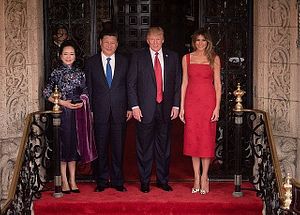According to Immanuel Wallerstein’s world systems approach, the world is a social system. This social system is made up of conflicting forces, which both hold it together through “tension” and tear it apart as each group seeks eternally to remold the system to its advantage. This is how world politics has evolved throughout modern and contemporary times.
The cohesive “tension,” however, can take different forms in different historical periods, and it can be the basic driving force for social and political evolution. In other words, tension can be the projection of the “dominant world contradiction.” For example, the European powers’ colonial-era trade monopoly, based on their political and military supremacy, was a “system response” to the tension between the global expansion of capitalism and the limited geographic resources in Europe. More recently, anticipated threats based on ideological and political antipathy between the two blocs sustained the tension during the Cold War years.
The world, however, has changed, and so has the dominant or fundamental world contradiction. The basic cohesive factor in the contemporary world system is no longer the colonial trade monopoly or Cold War ideological hatred, but it also should not be an obsessive rush for hegemonic power and competition among a few states.
One of the fundamental issues with contemporary world politics is a kind of systematic negligence and inaction by the dominant Western liberal order, which has actually been a part of the U.S. global strategy since the commencement of the Cold War. This is particularly true with respect to emerging problems and issues, which the existing global governance system has repeatedly failed to address. World homogenization toward a “higher standard” — for example through political democratization and economic privatization — has been the ostensible mandate of the U.S.-led order in the past decades, though this may not necessarily be the ultimate goal of the United States in reality. Nevertheless, as a result, exclusive political and institutional arrangements often have been adapted by the United States to deal with issues that can only be solved through inclusive arrangements.
And now, as critical problems and issues persist — for example regional conflicts, imbalanced global development, cross-boundary threats, and above all poor efficiency in global governance — a populist trend has arisen in the United States. “America First” has once again become Washington’s political slogan. This extreme contrasts with the United States’ previous interventionism by pursuing more isolationist foreign policies in the name of putting “America First.”
It is of course not wrong for any political leader to put his nation and his people first. But when this inflammatory political enthusiasm turns into a grand worldview that dominates a nation’s foreign policy and its overall relations with other parts of the world, things can be more complicated — especially when this nation is still the only superpower that has been a leader in the “liberal international order.” The real problem is that national parochialism may manipulate a nation’s worldview and lead to exclusivism in its perception of the whole world. The “America First” policy seems to indicate that at least some political elites in the United States think that hegemonic power competition or survival still is the fundamental contradiction of the world.
By contrast, China sees the world and itself quite differently. First of all, there is no doubt that China has put much effort toward “the great rejuvenation of the Chinese nation” in recent decades. But in this multicivilizational world that encompasses various political, economic, and cultural diversities, China sees and advocates for a “common destiny” among all nations. In my understanding, this term may best describe China’s new worldview in the ever-changing global context. It is a response, hopefully a key, to the fundamental contradiction of the world, especially in respect to the peace and developmental issues that are the major concern for many countries in the world.
As the world is still a “social system” convened under the prevailing liberal international order, it will interesting to see how China endeavors to preserve some substances of this international order — although it obviously advocates some serious reforms — while the United States is actually trying to deconstruct it. The point is that the world has changed; don’t we need a new worldview?

































